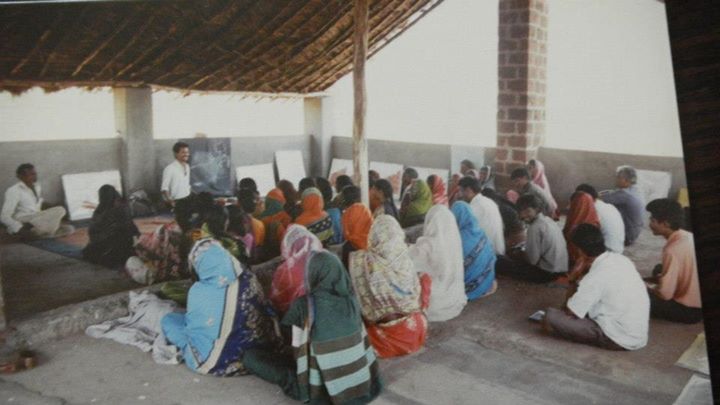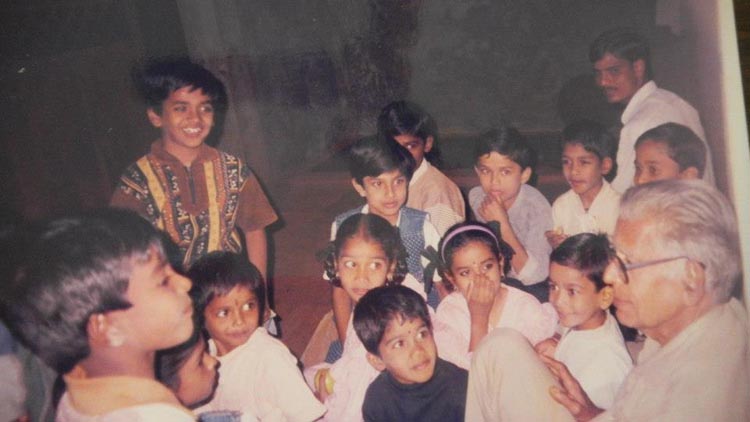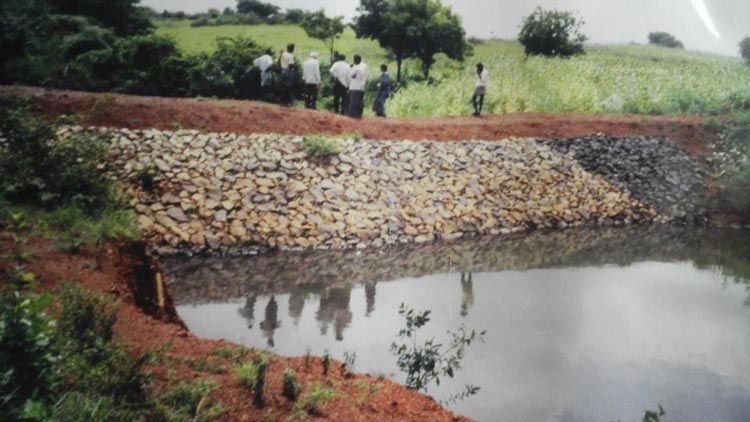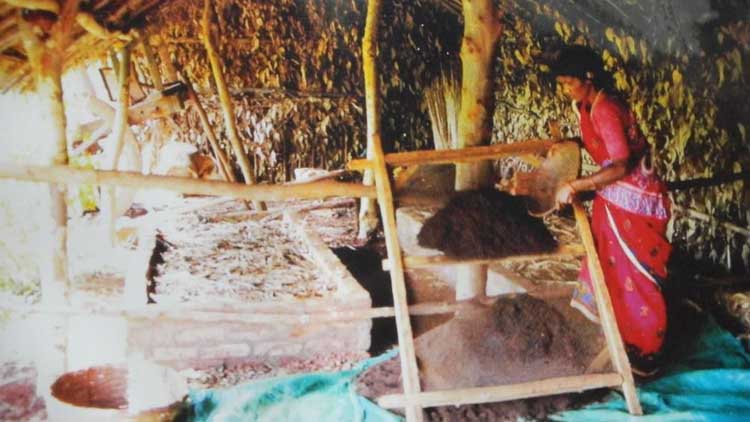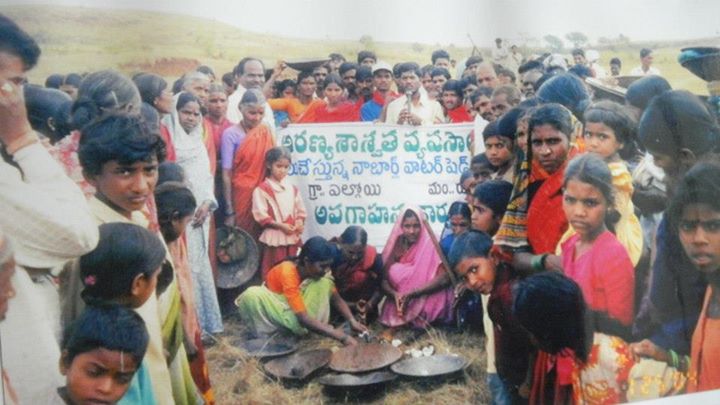
Bill Mollison, along with Robyn Francis, Dr.Venkat and some of his friends, pioneered the introduction of permaculture in India. They conducted the first one-day permaculture workshop in Hyderabad in December, 1986, followed by the first Permaculture Design Certificate (PDC) Course in 1987 which was attended by thirty participants from India and Nepal.
During the PDC course, it was decided to establish a 3.25 acre permaculture demonstration farm with DDS (Deccan Development Society) in Pasthapur, Zaheerabad district, Andhra Pradesh. The choice of venue was most relevant for India as it lies in semi-arid zone and is prone to drought - a dominant pattern in India. The strategy was to evolve it into a self-sufficient farm for a small family of five, to provide maximum food/fuel/fodder, and demonstrate various functions pertaining to harvesting rainwater, arresting soil erosion, nurturing the soil and establishing a polyculture of food crops and horticultural species. This farm was designed by Dr.Venkat with the help of Narsanna Koppula.
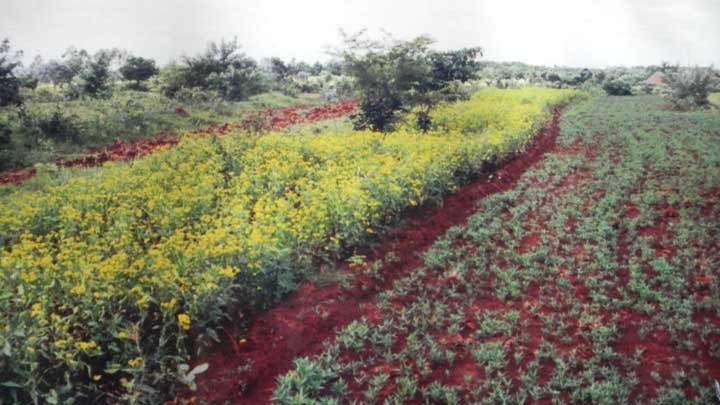
After having succeeded in harvesting very good yields (comparable to and often better than conventional yields) of locally needed and traditional food crops, this farm has now been converted into a seed bank for farmers in the region.
The Permaculture Association of India (PCAI) formed in November 1989. Dr. Venkat and Narsanna Koppula conducted short practice-oriented workshops, held demonstrations and distributed literature in Andhra Pradesh, Orissa, Kerala, Karnataka and Tamil Nadu. They provided hands-on training and support to imbibe Permaculture activity to selected NGOs, individuals, government organizations and research institutions to incorporate sustainable agricultural activities. The PCAI has worked on developing more Permaculture demonstration farms, facilitating further establishments of nuclear Permaculture farms and interstate exposure visits, extending internship programmes and promoting volunteerism.
In October 1990, the first Indian edition of Bill's Permaculture Designers' Manual was brought out jointly by the Permaculture Association of India and DDS. The run was of 2,000 copies. All permaculture design graduates were supplied with a free copy, and a large number was sold to various government agriculture departments.
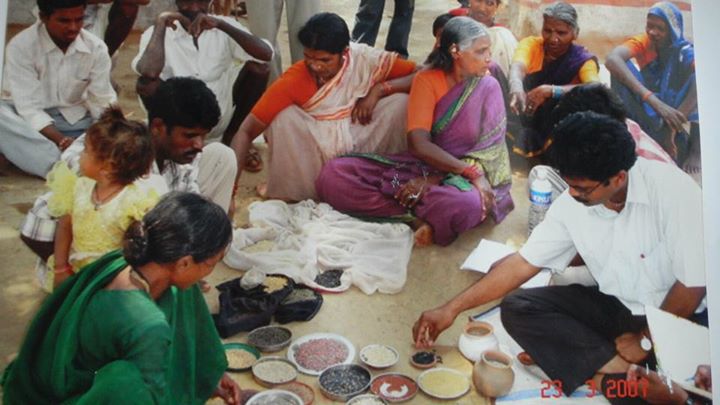
Later on Aranya Agricultural Alternatives shouldered the responsibility for promotion of permaculture concepts in all its projects. In the year 1997, Narsanna and Padma started 11.5 acres permaculture farm in Bidakanne village, Jharasangam mandal, Medak district and started training programs for the interested farmers. It evolved as a Permaculture Learning centre for the farmers. Narsanna Koppula is organising long-term permaculture internship programs, Permaculture Design Courses (PDC), Introduction Permaculture courses and other workshops for national and international participants.
Aranya is working to revitalise and revamp permaculture in Telangana and Andhra Pradesh through seed banks, live farm development, awareness campaigns and academic courses, with the bigger vision of spreading permaculture across India and the world. They have been advocating rainwater harvesting, soil regeneration, ethical land-use, and food security, amongst other things. The uptake from local communities is very promising.
Successively, many more Permaculture farms and organizations were born across India and they all met officially for the first time during the first ever National Permaculture Convergence held in Hyderabad in February 2016 (npcindia2016.org). Born out of it, the Permaculture India Network is currently working to keep the movement spreading across the country in a structured way.
